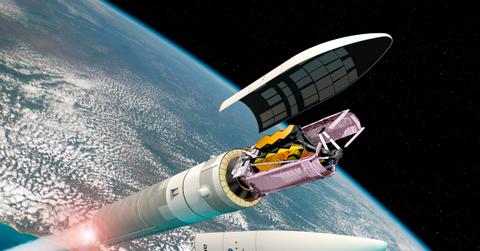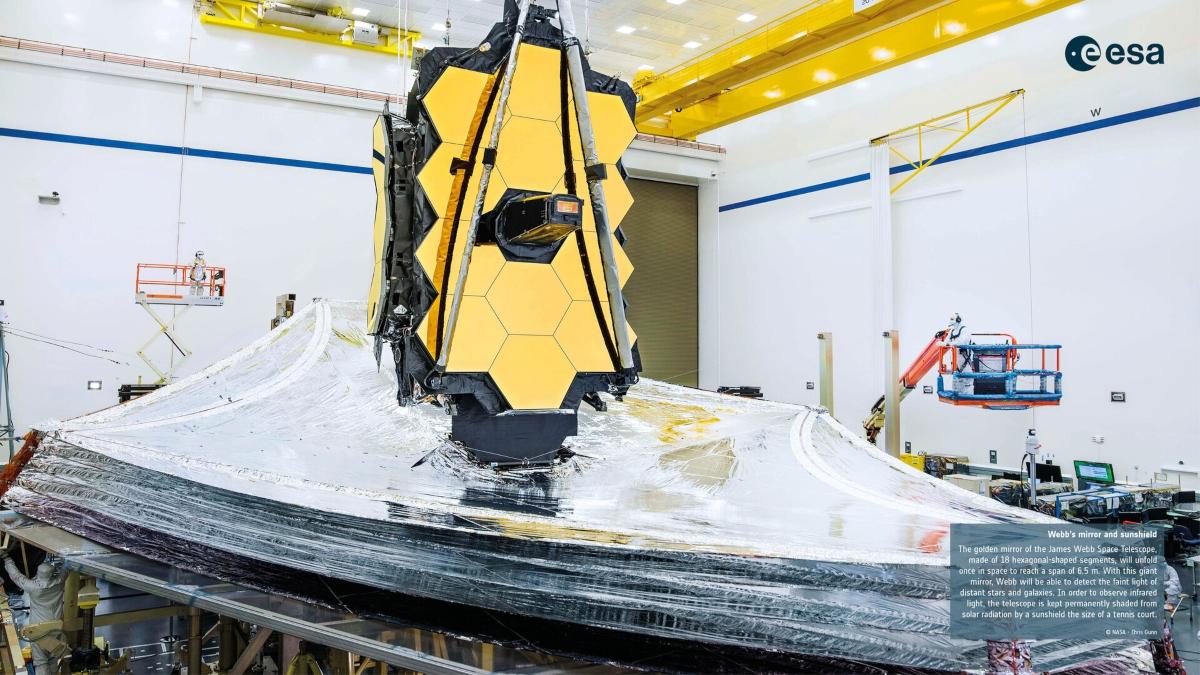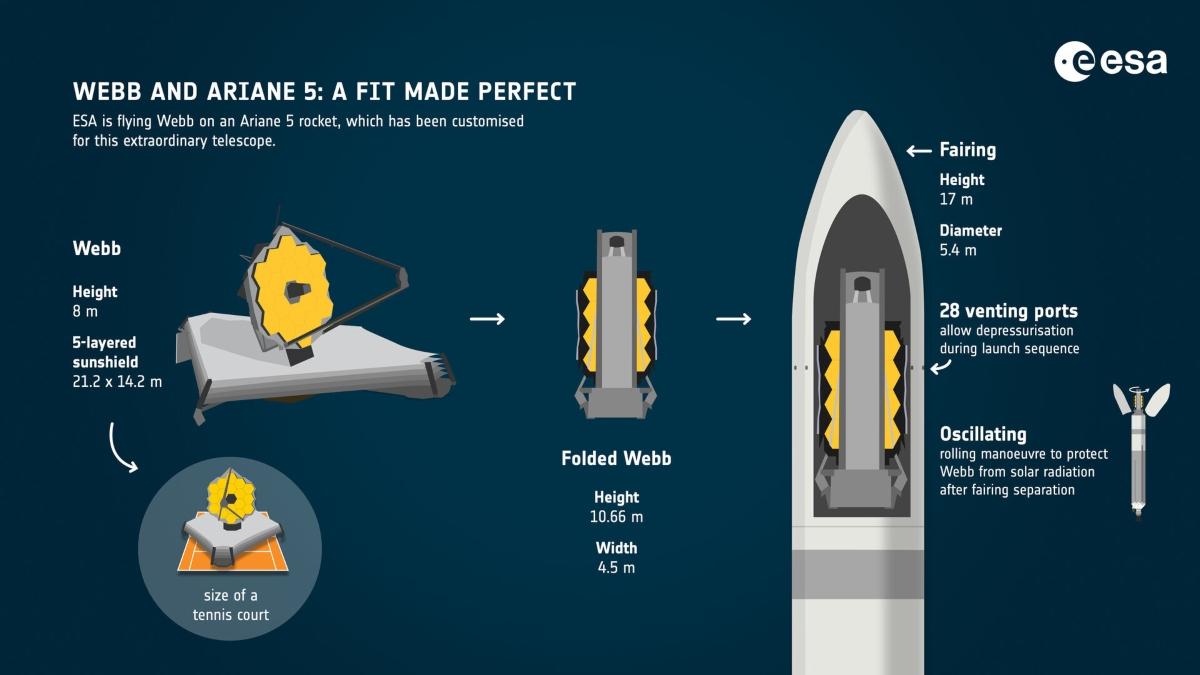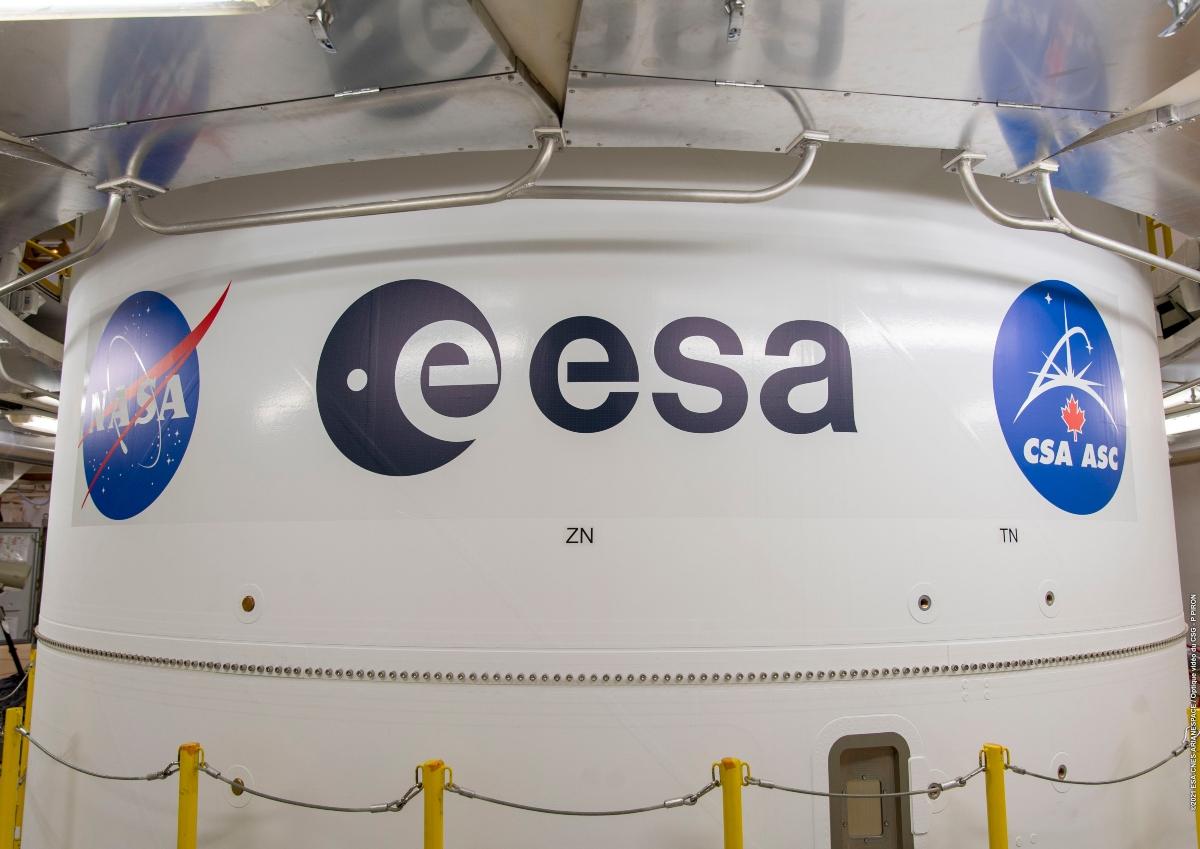After Multiple Delays, the James Webb Space Telescope Launch Time Has Been Set
The James Webb Space Telescope, a $10 billion, decades-long project, is set to launch soon after multiple delays.
Dec. 17 2021, Published 11:00 a.m. ET

The James Webb space telescope is set to launch soon.
The James Webb Space Telescope, NASA’s next iteration of the Hubble Space Telescope, has faced multiple delays. Working with Arianespace, NASA had previously intended to launch the space telescope on Oct. 31, 2021, according to Space.com.
The team involved in the James Webb Space Telescope has installed it on top of an Ariane 5 rocket. It’s expected to launch from French Guiana at the Guiana Space Center on Dec. 24, 2021.
What's the James Webb Space Telescope?
As NPR reports, the James Webb Space Telescope is the most powerful space telescope ever built. Its ability to view distant galaxies, specifically infrared light that has been traveling since the universe's inception, could reveal what the universe looked like nearly 14 billion years ago at its inception.

The "golden mirror" of the James Webb Space Telescope.
As astronomer Maruša Bradač from the University of California, Davis, said, “We are trying to build up the story of how the first galaxies ever emerged and how those evolved into galaxies we see today and we live in today.”

A diagram showing how the Webb telescope fits on the Ariane rocket.
The new James Webb Space Telescope launch date
The launch of the much-anticipated, $10-billion James Webb Space Telescope has been delayed several times. NASA has provided updates over the past weeks, and the current plan is for the Ariane 5 rocket transporting the telescope to launch in the morning on Dec. 24, 2021, at 7:20 a.m. ET.
The Webb telescope program is led by NASA along with the European Space Agency (ESA) and the Canadian Space Agency. MIRI, the mid-infrared instrument on the telescope, was developed 50-50 by NASA and the ESA.

The Hubble Space Telescope versus the James Webb Space Telescope
The Hubble Space Telescope has also shown astronomers important images of the universe. The most distant galaxy observed by Hubble was GN-z11, which associate professor Charlotte Mason said is like looking back in time 13.3 billion or 13.4 billion years ago.
The James Webb Space Telescope should provide a broader view of the universe than the Hubble telescope. “We really need much better samples, we need many more galaxies, and we need to step back in time to see how the galaxies are growing,” UC-Santa Cruz astronomer Garth Illingworth said.
Although the Webb telescope is extremely powerful, Illingworth also said it would be “practically impossible” to see the very first star, NPR noted.
What the James Webb Space Telescope will show
The James Webb Space Telescope is expected to show the universe back as far as 100 million–200 million years after the Big Bang, or around when the first galaxies may have formed, according to Mason.
NASA reported that the four infrared instruments on the telescope must be cooled intensely to about minus 388 degrees Fahrenheit. Plus, the detectors within the mid-infrared instrument (MIRI) must be cooled even more, to minus 488 degrees Fahrenheit (below 7 Kelvins, or minus 266 degrees Celsius).
This new telescope is anticipated to help scientists study the properties of first-generation stars. Gillian Wright, co-lead of the MIRI science team, said, “We have developed MIRI as a powerful capability for Webb that will enable astronomers from all over the world to answer big questions about how stars, planets, and galaxies form and evolve.”
